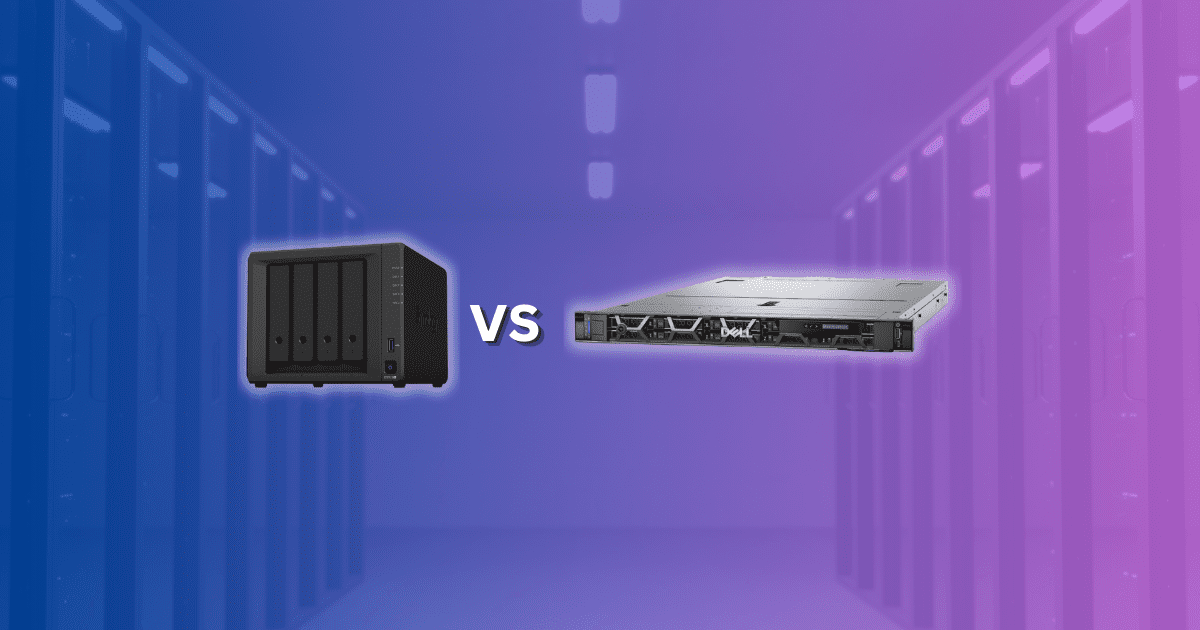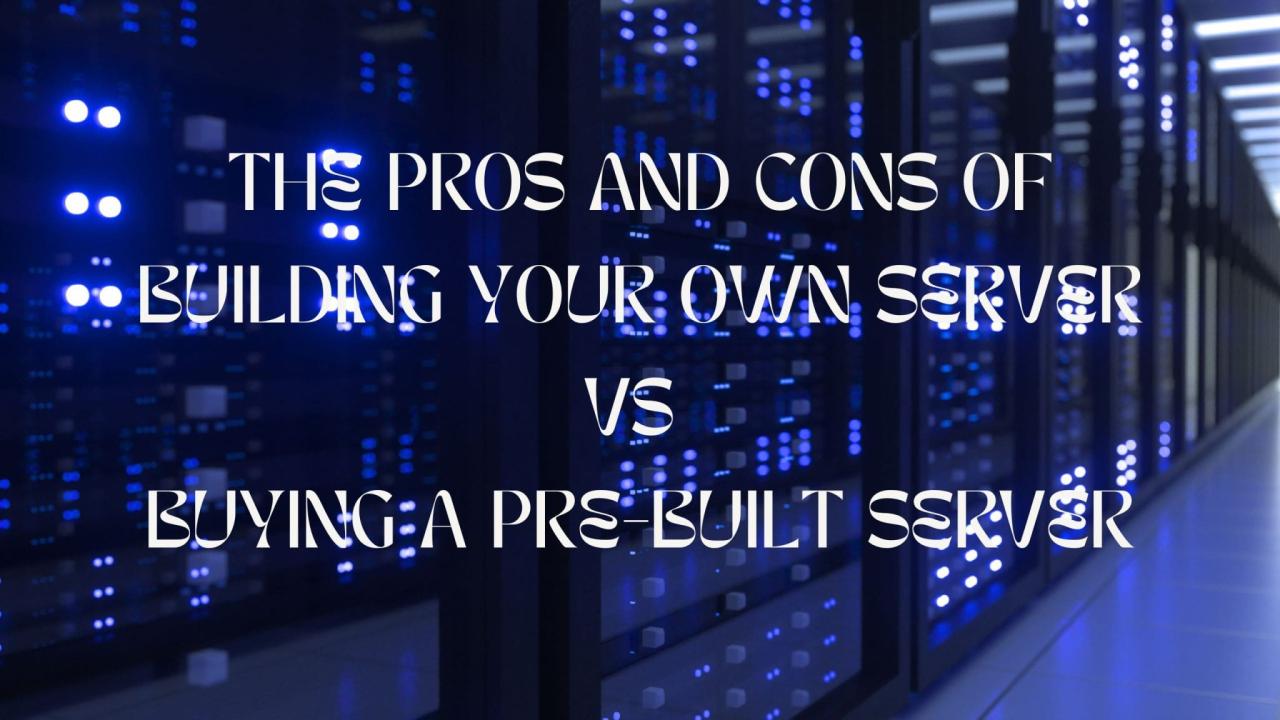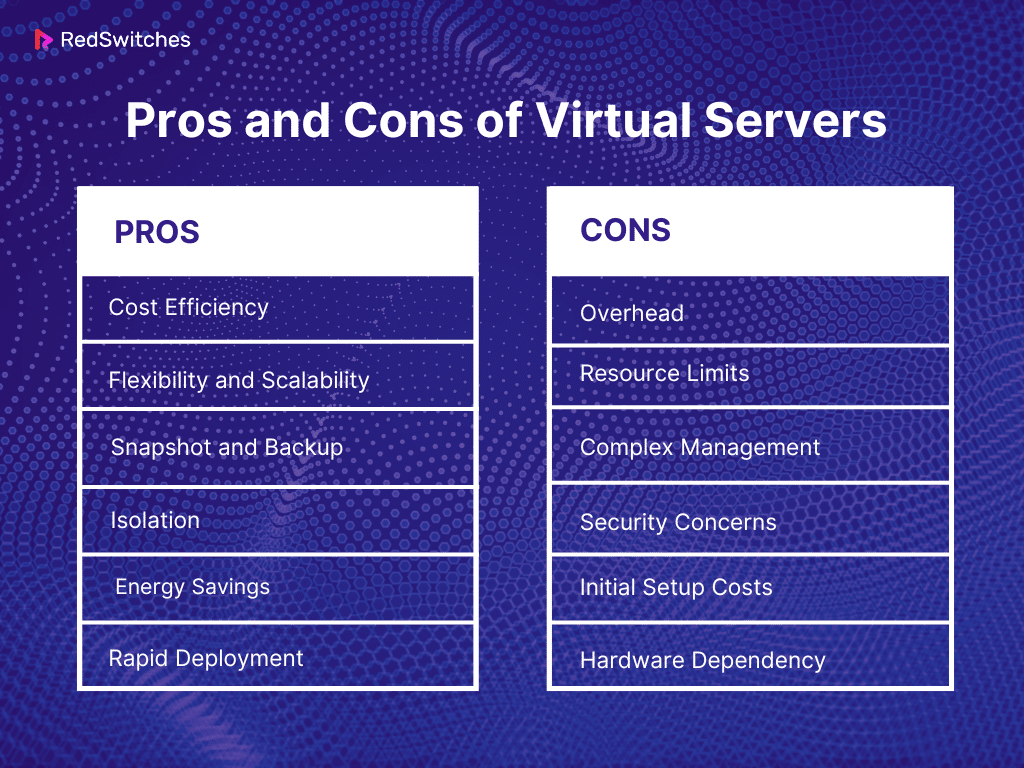Private server vs public server: Pros and Cons

Exploring the differences between private servers and public servers in online gaming reveals a myriad of advantages and drawbacks that players and developers alike must consider. From control and customization to security and community interaction, each server type offers a unique gaming experience.
Let's delve into the intricacies of private server vs public server: Pros and Cons.
As we navigate through the intricacies of private server vs public server: Pros and Cons, we uncover the key factors that shape the gaming landscape for enthusiasts and developers.
Private Server

In online gaming, a private server refers to a server that is privately owned and operated by individuals or a group of players, rather than the game's official servers.
Benefits of Using a Private Server:
- Enhanced Control: Private servers offer players greater control over the game environment, allowing for customized rules, settings, and modifications.
- Community Building: Players on private servers often form tight-knit communities due to the smaller player base and shared interests.
- Exclusivity: Private servers can offer unique content, events, and experiences not found on public servers, creating a sense of exclusivity for players.
Level of Control and Customization:
Private servers provide administrators with the ability to tailor the gaming experience to their preferences. They can adjust gameplay mechanics, spawn rates, item availability, and other parameters to create a unique and personalized environment for players.
Security Features of Private Servers:
Private servers typically have stricter security measures in place compared to public servers. With fewer players and more direct oversight by administrators, private servers are less susceptible to hacking, cheating, and other forms of exploitation.
Public Server

A public server in online gaming refers to a server accessible to anyone who wants to join and play the game. These servers are typically managed and maintained by the game developers or hosting companies to accommodate a large number of players simultaneously.
Advantages of Playing on a Public Server
- Large player base: Public servers attract a diverse group of players, providing opportunities for social interaction and collaboration in the game.
- Accessibility: Public servers are easy to join and do not require special permissions, making it convenient for new players to jump in and start playing.
- Regular updates and maintenance: Since public servers are managed by professionals, players can expect regular updates, bug fixes, and maintenance to ensure a smooth gaming experience.
- Competition: Playing on a public server often means facing a higher level of competition, which can challenge players to improve their skills and strategies.
Community Aspect and Player Interaction on a Public Server
Public servers foster a sense of community among players, allowing them to form friendships, alliances, and rivalries within the game. Players can chat, collaborate on missions, or engage in team-based activities to enhance their overall gaming experience.
Performance and Stability of a Public Server
- Performance: Public servers are equipped to handle a large number of players simultaneously, offering a seamless gaming experience with minimal lag or latency issues.
- Stability: While public servers may experience occasional downtime for maintenance or updates, they generally provide stable gameplay due to the robust infrastructure and resources allocated to support them.
- Server Load: Public servers can sometimes experience high server load during peak hours, leading to potential performance issues or queue times for players trying to access the server.
Pros and Cons of Private Servers
Private servers offer a unique gaming experience for both players and developers. Let's explore the advantages and disadvantages of utilizing private servers in the gaming industry.
Advantages of Private Servers
Private servers provide players with a more customized and controlled gaming environment. Players can enjoy exclusive content, special events, and unique features that are not available on public servers
Disadvantages of Private Servers
One drawback of private servers is the potential lack of player population compared to public servers. This can lead to longer wait times for matchmaking and a less dynamic gaming experience. Additionally, private servers may require a subscription or one-time fee to access, which can deter some players from joining.
Popular Games with Private Server Options
Games like World of Warcraft, Minecraft, and RuneScape offer private server options that allow players to create their own worlds, mods, and gameplay rules. These private servers have a significant impact on the gaming community by fostering creativity, innovation, and a sense of ownership among players.
Cost Implications of Private Servers
Setting up and maintaining a private server can be costly for game developers. Expenses may include server hosting fees, maintenance costs, and technical support. However, the potential revenue generated from subscriptions or in-game purchases on private servers can offset these initial costs and provide a steady income stream for developers.
Pros and Cons of Public Servers

Public servers offer a range of benefits and challenges that impact the gaming experience for players worldwide. Let's delve into the advantages and drawbacks of playing on public servers.
Accessibility and Player Base
Public servers are easily accessible to a wide audience of players, creating a vibrant and diverse community. The large player base ensures that you can always find fellow gamers to interact with, collaborate, or compete against. This social aspect enhances the overall gaming experience by fostering connections and friendships across different regions.
Challenges and Issues
One common challenge with public servers is the potential for encountering disruptive or toxic behavior from other players. Trolls, hackers, or griefers can negatively impact the gaming environment, leading to frustration and a less enjoyable experience. Moreover, overcrowded servers may result in lag, latency issues, or long wait times to join a game, affecting gameplay quality.
Contribution to Gaming Experience
Despite the challenges, public servers play a crucial role in enriching the gaming experience by offering a dynamic and interactive platform for players to engage with each other. The competitive nature of public servers can push players to improve their skills, strategize better, and adapt to different playstyles, ultimately enhancing the overall gaming experience.
Scalability and Infrastructure
Public servers require robust infrastructure to support the large influx of players and ensure seamless gameplay. Scalability is essential to accommodate the growing player base and maintain performance standards. Game developers and server administrators must invest in reliable servers, network systems, and maintenance to sustain the demand and provide a smooth gaming experience for all players.
Last Word
In conclusion, the debate between private servers and public servers underscores the nuanced choices players face when immersing themselves in online gaming. From performance and stability to accessibility and player base, each server type presents a distinct set of advantages and challenges.
Navigating this landscape requires a thoughtful consideration of the pros and cons inherent in both private and public servers.
Question & Answer Hub
What level of control do private servers offer players?
Private servers provide players with extensive control over gameplay settings, rules, and modifications, allowing for a highly customized gaming experience.
Are public servers more secure than private servers?
Public servers generally have stricter security measures in place due to the larger player base and potential vulnerabilities, whereas private servers offer more control over security protocols.
What are the typical challenges of setting up a private server?
Setting up a private server can be complex and time-consuming, requiring technical expertise and ongoing maintenance to ensure optimal performance.
How do public servers contribute to the overall gaming experience?
Public servers enhance the gaming experience by fostering a sense of community, facilitating player interaction, and providing a platform for competitive gameplay on a larger scale.

